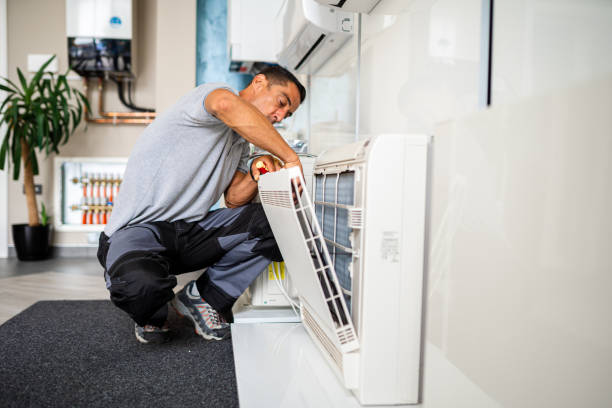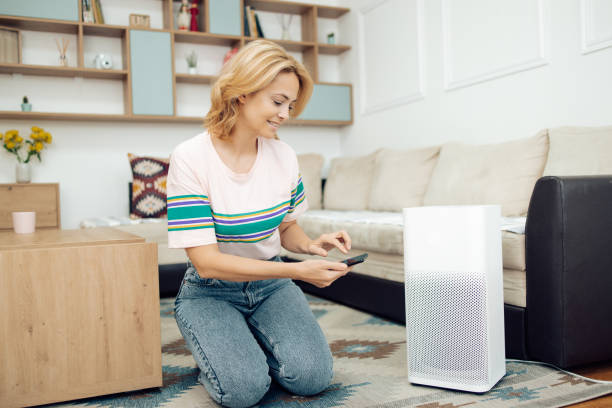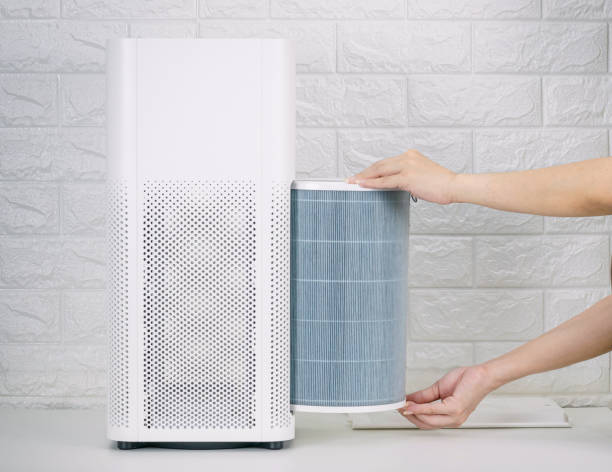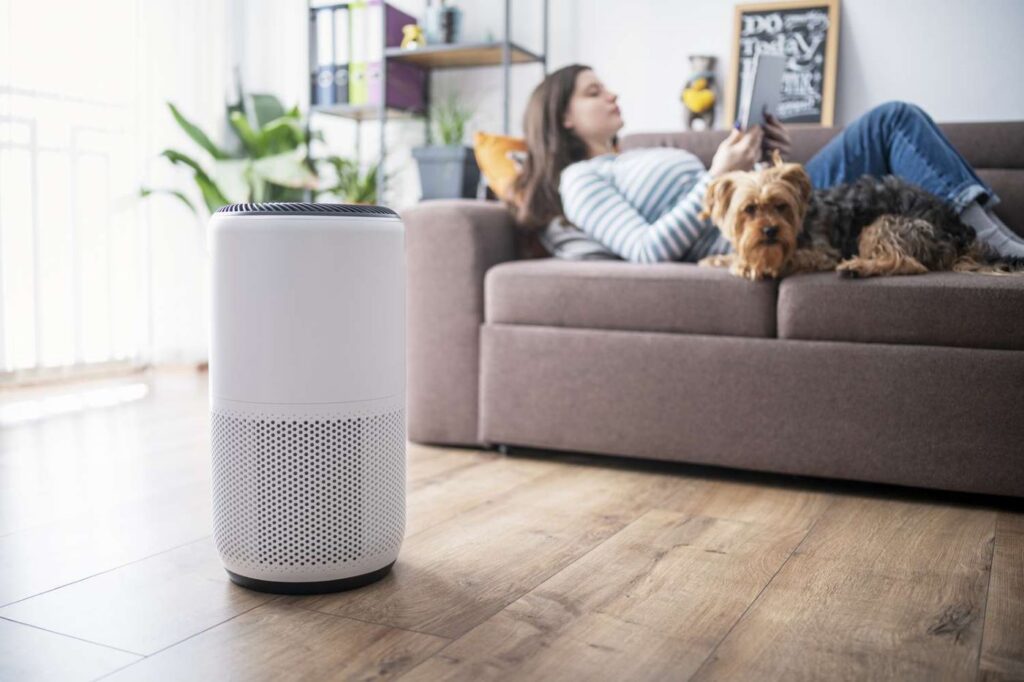Alternative Treatments
Understanding How Air Purifiers Can Affect Health Conditions
Are you thinking of investing in an air purifier to improve the quality of your indoor air? While these devices are frequently advertised as a cure-all for a variety of health issues, it is crucial to note that air purifiers can exacerbate certain health conditions. In this article, we’ll look at the risks linked with air purifiers and how they can harm your health.
Common Health Conditions That Can Be Aggravated by Air Purifiers
Air purifiers operate by removing pollutants and particles from the air, which might include dust, pollen, pet dander, and even dangerous substances. While this can be good for people with allergies or asthma, it’s crucial to know that certain air purifiers emit ozone as a byproduct. Ozone, a reactive gas, can irritate the respiratory system and exacerbate symptoms of respiratory disorders.
Individuals suffering from chronic obstructive lung disease (COPD), bronchitis, or emphysema may find ozone in the air to be especially bothersome. Ozone can cause inflammation in the airways, resulting in shortness of breath, wheezing, and coughing. It can also aggravate symptoms of other respiratory illnesses, such as asthma, making it harder for people to breathe properly.
In addition to ozone, certain air purifiers can emit small particles known as “ultrafine particles” into the atmosphere during the cleaning process. These particles are exceedingly minute and can travel deep into the lungs, perhaps causing irritation or respiratory issues. People with pre-existing lung disorders, such as cystic fibrosis or pulmonary fibrosis, may be more vulnerable to the harmful effects of these ultrafine particles.

Understanding the Potential Negative Effects of Air Purifiers
While air purifiers can be useful for certain people, it’s crucial to understand the potential harmful impacts on health issues. Research has revealed that ozone exposure can cause respiratory symptoms such as coughing, wheezing, and shortness of breath. Some studies have even claimed that long-term ozone exposure leads to the development of respiratory illnesses.
Similarly, ultrafine particles emitted by air purifiers might cause respiratory issues. These particles are small enough to pass through the body’s natural defense mechanisms and reach the deepest sections of the lungs. When inhaled, they can cause inflammation and respiratory problems, particularly in people with reduced lung function.
It’s worth mentioning that not all air purifiers emit ozone or ultrafine particles. However, before purchasing any air purifier, you should carefully review the specifications, especially if you have a pre-existing health issue. Look for air purifiers that have been certified by credible organizations and tested for ozone emissions and particle discharge.
Research and Studies on the Impact of Air Purifiers on Health Conditions
Numerous studies have been undertaken to assess the effects of air purifiers on a variety of health issues. A study published in the Journal of Allergy and Clinical Immunology discovered that exposure to high levels of ozone created by air purifiers can promote lung inflammation and worsen asthma symptoms. Another study published in Environmental Health Perspectives revealed that long-term exposure to ultrafine particles emitted by air purifiers increased the risk of cardiovascular disease.
However, it is crucial to remember that not all research have identified detrimental impacts from air purifiers. According to some study, air purifiers can enhance indoor air quality and provide comfort to people who suffer from allergies or asthma. The idea is to examine each individual’s distinct health demands and select an air purifier appropriate for their condition.

Factors to Consider When Choosing an Air Purifier for Sensitive Individuals
If you have a pre-existing health issue and want to buy an air purifier, there are a few things you should think about to reduce the dangers and maximize the benefits:
- Type of air purifier: Choose an air purifier that does not emit ozone as a byproduct. Look for versions that are specifically built for those with sensitive skin and have been tested for ozone emissions.
- Filtration system: Look for air purifiers with high-efficiency particulate air (HEPA) filters, which may effectively collect a variety of particles such as allergies, dust, and pet dander. HEPA filters are meant to remove at least 99.97% of airborne particles with a diameter of 0.3 micrometers or greater.
- Size of the room: Consider the size of the room you intend to utilize the air purifier in. Make sure the purifier can efficiently circulate and filter the air in the specified space.
- Noise level: Consider the noise level of the air purifier, particularly if you intend to use it in a bedroom or other peaceful spaces. Look for versions that function quietly, allowing you to sleep peacefully and uninterrupted.
- Maintenance: Consider the air purifier’s maintenance requirements, such as filter change. To ensure optimal efficiency and pure air, filters must be changed on a regular basis.
By carefully considering these factors, you can select an air purifier that is suitable for your specific needs and minimize potential health risks.
Tips for Using Air Purifiers Safely and Minimizing Potential Health Risks
To ensure the safe and effective use of air purifiers, follow these tips:
- Read the manufacturer’s instructions: Familiarize yourself with the instructions provided by the manufacturer to ensure proper installation, usage, and maintenance of the air purifier.
- Keep the room well-ventilated: While air purifiers work to filter the air, it’s important to maintain good ventilation in the room. Open windows or use a fan to allow fresh air circulation.
- Regularly clean and replace filters: Follow the manufacturer’s recommendations for cleaning and replacing the filters. Dirty or clogged filters can reduce the effectiveness of the air purifier and potentially release captured particles back into the air.
- Avoid excessive ozone exposure: If you have an air purifier that produces ozone, ensure that the ozone levels remain within safe limits. It’s recommended to use an ozone monitor to measure the ozone levels in the room.
- Monitor your symptoms: Pay attention to any changes in your symptoms after using an air purifier. If you notice an increase in respiratory symptoms or any other negative effects, discontinue use and consult with a healthcare professional.
By following these guidelines, you can minimize potential health risks associated with air purifiers and ensure a healthier indoor environment.

Alternatives to Air Purifiers for Improving Indoor Air Quality
If you have concerns about using air purifiers or if they are not suitable for your specific health condition, there are alternative methods to improve indoor air quality:
- Proper ventilation: To ensure excellent ventilation in your home, open windows on a regular basis, use exhaust fans in kitchens and bathrooms, and keep the airflow comfortable.
- Regular cleaning: Cleaning on a regular basis will help to remove dust, pet dander, and other allergens from your home. Vacuum the carpets and upholstery, dust the surfaces, and wash the bedding and curtains frequently.
- Control humidity: Maintain humidity levels to avoid the growth of mold and mildew. Use dehumidifiers in moist areas and swiftly repair any leaks.
- Avoid smoking indoors: Avoid smoking inside since it can emit toxic chemicals and particles into the air. If you smoke, do so outside or in approved smoking locations.
- Plants: Indoor plants can assist improve air quality by absorbing CO2 and emitting oxygen. Snake plants and peace lilies are well-known for their ability to filter the air.
Consulting with a Healthcare Professional for Personalized Advice
Before making any decisions about air purifiers or other measures to enhance indoor air quality, it is always best to consult with a medical specialist. They can give you individualized counsel based on your specific health condition, allowing you to make informed decisions that emphasize your well-being.
Your healthcare professional can analyze your symptoms, identify potential causes, and prescribe steps to enhance your interior environment. They may also be able to provide alternate remedies or treatments that address the root reasons of your health problem.
Conclusion
Air purifiers can be an effective tool for improving indoor air quality, particularly for people who have allergies or asthma. However, it is critical to understand the risks linked with air purifiers, especially for people who have pre-existing health concerns.
Individuals with health conditions can make informed judgments about using air purifiers by carefully examining the type, considering the potential negative effects, and taking the appropriate safeguards. Prioritize your personal health needs and seek specialized guidance from healthcare professionals.
Remember that there are other ways to improve indoor air quality, and you must choose the strategy that is most suited to your unique needs. By taking proactive actions to establish a clean and healthy interior environment, you may improve your general well-being while reducing health risks.
Trusted Health, Wellness, and Medical advice for your well-being


